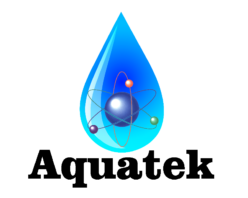Notice!!! – Contaminants of Emerging Concern
What Are Contaminants of Emerging Concern?
Sometimes chemicals that had not previously been detected (or were previously found in far lesser concentrations) are discovered in the water supply. These chemicals are known as “contaminants of emerging concern” or simply “emerging contaminants.” Emerging contaminants are important because the risk they pose to human health and the environment is not yet fully understood.
Pharmaceuticals, personal care products (PCPs) and endocrine disrupting compounds (EDCs) are among the prime examples of emerging contaminants. Up to 90% of oral drugs pass through the human body and end up in the water supply. Personal care products (soaps, cosmetics, fragrances, etc.) also find their way into our water. Endocrine disruptors are substances that may interfere with the function of hormones in the body. Trace amounts of these contaminants are being discovered in water throughout the country. The U.S. EPA is working to improve its understanding of several emerging contaminants, including perchlorate, pharmaceuticals, PCPs and EDCs.
Should I be concerned about contaminants?
It’s bad enough to be able to see, smell, or taste a contaminant. But what if your water looks, smells, and tastes just fine — is it? Not necessarily.
Microbial and organic contaminants cannot always be detected by human senses. You might go years before realizing a problem exists. Many folks never become suspicious until people in the community start to get sick. Water near agricultural areas may contain harmful organic material from pesticide or fertilizer application. Chemicals from pesticides and fertilizers in water may increase cancer risk and reproductive problems, and can impair eye, liver, kidney, and other body functions. Similar problems can result from exposure to water near industrial plants.
With advances in testing and health research, experts are learning of new potential dangers in our drinking water. In many cases, the possible harms are not yet fully known.
Some common waterborne contaminants include:
- Aluminum
- Ammonia
- Arsenic
- Barium
- Cadmium
- Chloramine
- Chromium
- Copper
- Fluoride
- Bacteria & Viruses
- Lead
- Nitrates/Nitrites
- Mercury
- Perchlorate
- Radium
- Selenium
- Silver
- Uranium
Even if you cannot see, taste or smell the contaminants, there are resources available to help you detect and treat the issues.
How do I know if there are contaminants in my water?
Home testing for many newly discovered threats does not yet exist. In some cases, state laboratories can test for these contaminants or local professionals can provide water treatment to address them. Public health advocacy agencies and government bodies also conduct surveys to find some of these contaminants.
How can I prevent them from entering my home?
To feel confident you are protecting yourself against contaminants, you should seek devices that have been rigorously tested and certified to independent standards. Experts in testing are constantly working to develop new standards to meet emerging threats.
Whether you just want the fresh, clean taste of bottled water without the expense and waste, or you need protection from waterborne contaminates, a Point-of-Use System may be the best choice for you. Point-of-Use (POU) systems come in several varieties but what they all have in common is that they serve as a final barrier to the contaminates of concern just prior to the point that the water is used or consumed. POU systems are less costly than Whole-House Softening and Filtration systems however they will only treat the water at a specific outlet. Most POU systems are installed on the counter-top or under a kitchen or bathroom sink.
With a POU Water Filtration System you can have delicious, sparkling-clear drinking water without the high cost of bottled water or expensive water dispenser equipment and delivery contracts. Since these systems use your homes water supply, you’ll also never run out. Fruits and vegetables will be cleanly rinsed and your soups, sauces and cooked meals will all taste better. It’s also great for your pet’s health!
Point-of-Use Options
You have several choices when it comes to treating your water at the POU. Gravity devices such as countertop pitchers that use carbon filters can be an inexpensive solution. However, the best options for everyday use and performance are Inline Water Filters, Inline Water Conditioners or Reverse Osmosis Systems:
Inline Water Filter, Conditioner and Purifier
Inline filters are installed between the line carrying water to your faucet and the faucet itself. These filters come packed with filtration media or membranes that trap contaminants while maintaining normal water flow.
- Water Filter cartridges are best for reducing bacteria, cysts, chemicals and chlorine taste & odor.
- Water Conditioner cartridges have the added benefit of also reducing sediment and heavy metals such as lead.
- Water Purifier cartridges reduce chemicals, chlorine taste & odor with the added benefit of an ultra-filtration membrane for retention of bacteria, cysts & viruses.
- Kits are available that allow the filters to be connected to a separate, dedicated drinking water faucet.
- Maintenance includes periodic changing of the filter cartridges.
Reverse Osmosis Systems (RO)
The name may sound technical, but osmosis is a natural organic phenomenon that occurs in nature on an everyday basis. RO systems force water under pressure through a semi-permeable membrane and a series of pre-filters then into a storage tank that holds the treated water until it’s needed. A dedicated external faucet is included so that the stored water is only used when desired.
- RO system filter modules include
- A pre-filter that captures larger particles, chlorine and other substances
- A semi-permeable membrane filter that captures finer contaminates
- An activated carbon filter that takes care of residual taste, odor and additional organic contaminates.
- RO systems reduce bacteria, cysts, sediment, chemicals, lead & other heavy metals, dissolved solids, chlorine taste and odors.
- Maintenance includes periodic replacement of the pre-filter, semi-permeable membrane and activated carbon filter cartridges.
See this document from the WQA for more information

